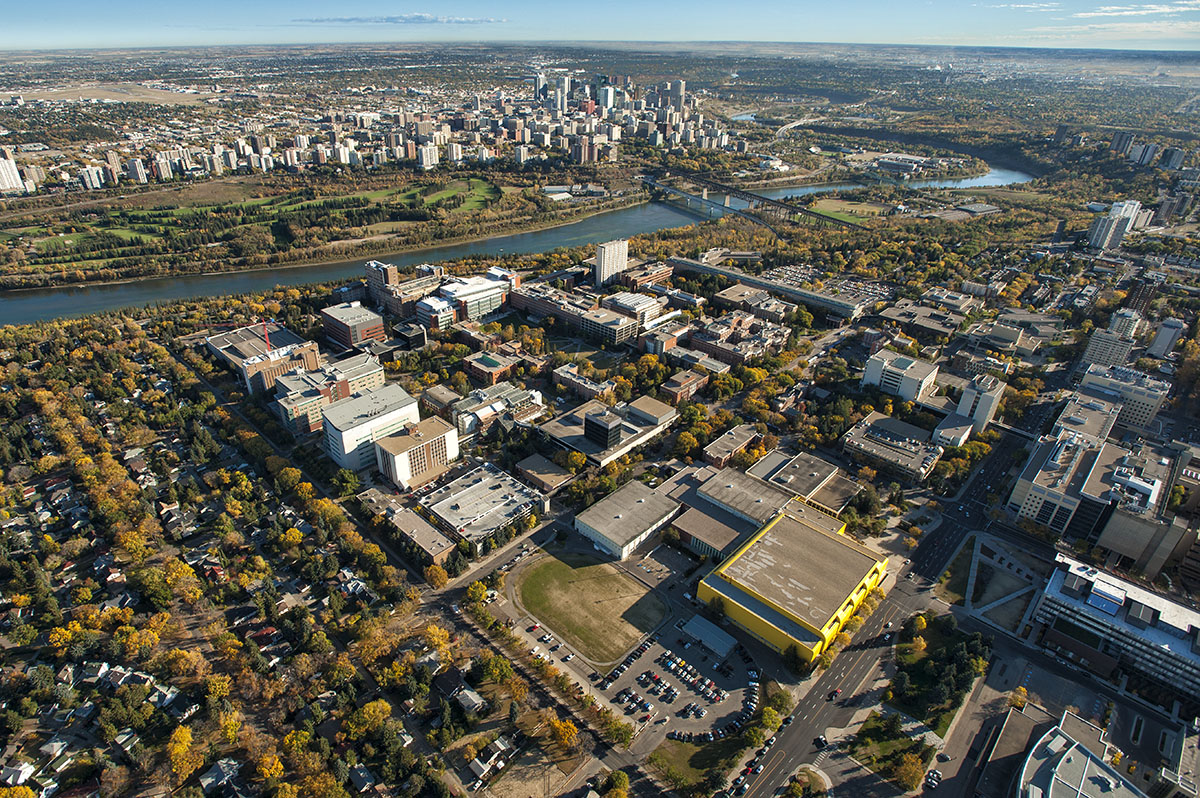
Smart cities technology can be put into action anywhere with rich historical data and robust sensors providing real-time information, including right here at the University of Alberta.
Imagine a city with less traffic, easy-to-find parking spots, and up-to-the-minute information about promotions and offerings at the stores and restaurants around you. A smart city. Even a smart campus.
Researchers at the University of Alberta are developing technology to make such a place a reality-right here in Edmonton.
"Smart cities are those that use technology to leverage existing data and current sensors to inform us about the world and improve our lives," said Eleni Stroulia, professor in the Department of Computing Science. "We have the physical world sending messages about its status to the web, where computations can happen to inform, influence and even control the real physical world."
"From conducting speedy evacuations to getting hungry students to leftover catering, the case for building smarter cities and campuses is very strong." -Eleni Stroulia
Best of all, this type of technology can be put into action anywhere with rich historical data and robust sensors providing real-time information, making it useful, valuable and widely applicable.
In her graduate and undergraduate courses, Stroulia introduces students to the world of smart cities and the Internet of Things, encouraging them to develop their own ways of applying this technology to the real world.
Her students developed three projects last fall, each with useful applications in Edmonton: real-time traffic routing, parking stall monitoring, and location-based services on campus.
Traffic routing: This application, built by graduate student Diego Serrano and a team of undergraduate students, helps drivers find the best routes through traffic. Serrano used traffic data from the City of Edmonton, including historical data on accidents, speed, direction of traffic and congestion, as well as real-time data from traffic cameras and individual reports to build the application.
Parking stalls: Graduate student Sepehr Valipour developed an application that tells users where parking stalls on campus are available and how to get there, relying on easily available data from cameras in parking lots. The required infrastructure is already in place in some parking lots on campus and the software could soon be deployed to save energy and time.
Campus services: Graduate student Alexandr Petcovici fused information from wireless routers on campus, GPS technology and enterprises on campus to provide real-time location-based services to users on campus. Potential applications of Petcovici's project range from alerting students about building closures to reducing food waste and energy loss.
More broadly, Stroulia explained, technology that builds smarter cities and campuses has near-infinite applications, from reducing waste to managing crisis situations and everything in between.
"These models can be applied anywhere with similar historical data and the necessary sensors. From conducting speedy evacuations to getting hungry students to leftover catering, the case for building smarter cities and campuses is very strong."
The research was presented at the Institute of Electrical and Electronics Engineers World Forum on the Internet of Things in December 2016.